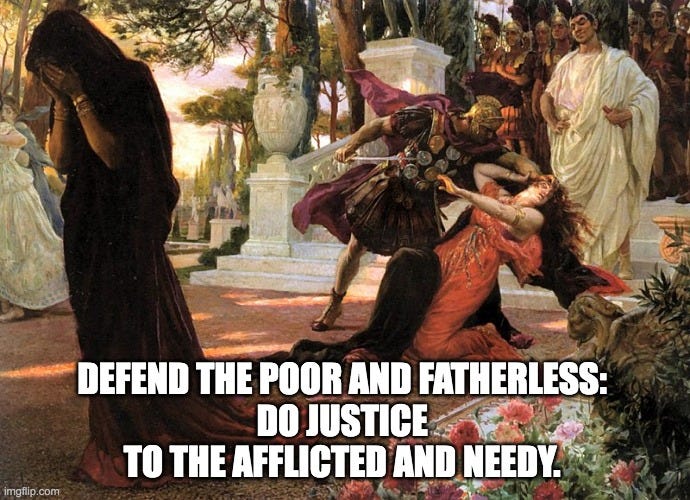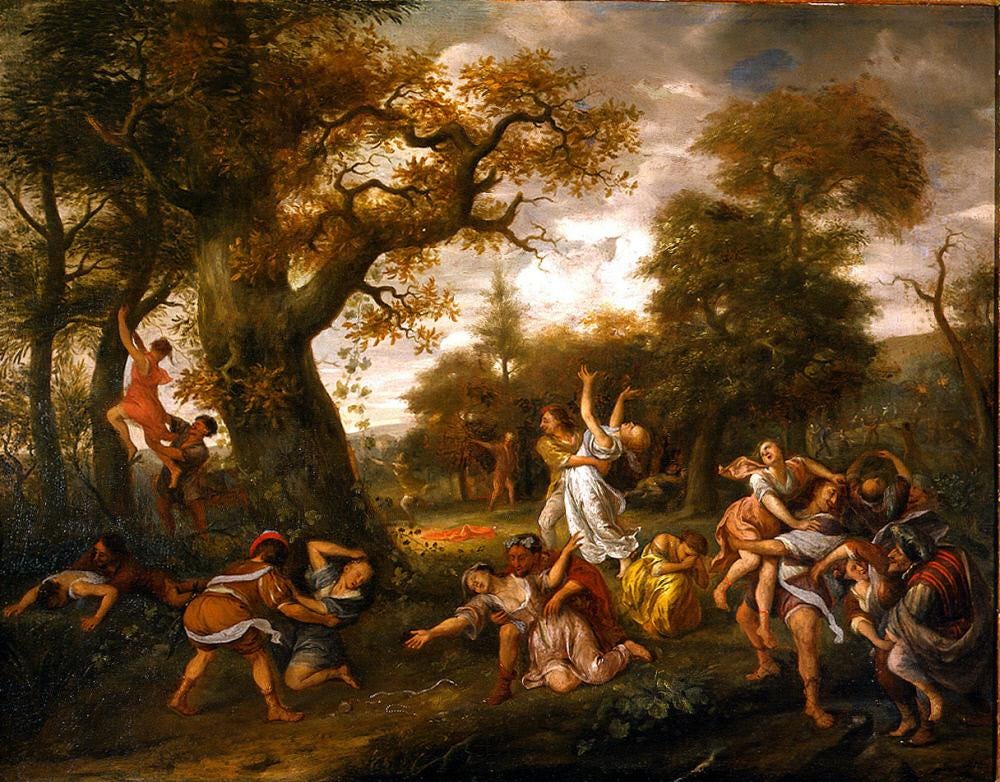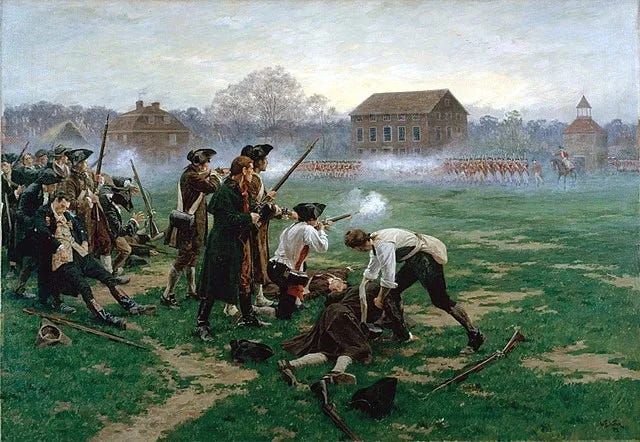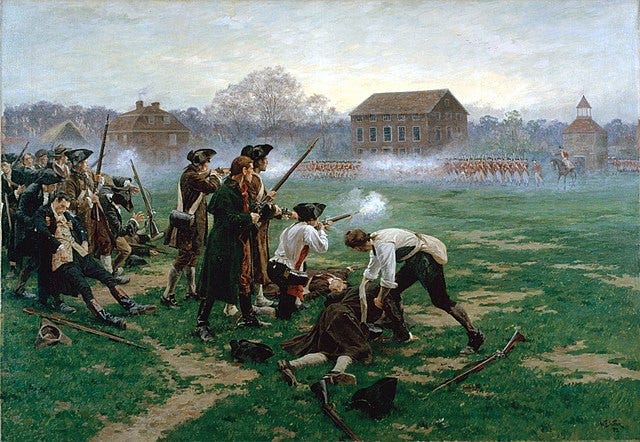Well, Don Pato originally wanted to have a gun-control discussion, but that seems to have fallen by the wayside, so what was I to do with all of the arguments that I had rattling around in my brain? Write them down, obviously.
So here is the first one, dealing not with statistics and maps, but morality. Because morality is not a mere creature of numbers, but of basic principles. I write, myself, from the standpoint of a Christian, and a theonomic one, but I don’t really know of any standard of morality that could possibly reduce it to mere numbers.
Because you have to know what numbers you think are important. If I said “Doing X will result in ten percent fewer slaves,” then whether you think X is good will depend on whether you think slavery is good… and on what happened to the ten percent. Did they end up as free men? Executed??
In order to even begin to use numbers in any discussion of morality, you have to know what you think is ‘the good thing’, or ‘the good things’. And if more than one, how do you judge between them? If divorce is a bad thing, does it then follow that marriages should be avoided because only married people can get divorced? Or do we turn that around and say that marriage is good, and divorce is bad because it breaks up a marriage?
There is a possibly apocryphal concept entitled, ‘pour encourager les autres’ It consists of randomly grabbing some innocent officer (or one no more guilty than the other officers) and shooting him for some common fault. The goal of this system is to ‘encourage the others’, i.e. to get them to shape up.
It might be that this kind of behaviour, shooting an innocent man to encourage ‘the others’, if done at the right time, might promote actions in a battle or a war which could save dozens or even hundreds of lives. So if we look at it purely statistically, this system was an unqualified success. On balance, it saved lives.
The moral dimension of the gun-control argument
There is an aspect of the gun-control arguments that I never see addressed and definitely never from the pro-gun-control side. That is the issue of the morality of what the state says to the individual. Every individual human being is not only a moral agent, but is an agent upon which morality operates. If society performs upon him an immoral action against an individual there's a very real sense in which one cannot counterbalance that against the advantages gained by the group.
This means that when we look at gun control laws, we need to not only look at their effect on the group but their affect on the individual. We need to literally ask ourselves not ‘Are gun control laws right?’ in the abstract, but ‘Is it good for me to take this gun away from this person at this time?’.
It is, for example, a well-known phenomenon that, in areas where it is difficult to get a gun for protection, it is a lot easier for a rich, well-connected, powerful person to get a gun, or to be able to hire someone with a gun, than it is for a poor person. The poor person might have a hard time with the purchase price of the gun, but they have a harder time navigating the corridors of city hall to get a permit.
One Rapist
Let us assume, although I deny this vociferously, that taking guns out of the hands of the general public has a net effect of saving lives in the population as a whole. And let us assume that we pass a very effective set of gun control laws and take guns away from the public. Then let us assume that there is one woman who is raped and murdered in some back alley who wouldn't have been if she had not been disarmed by gun control laws and the government. In an alternate universe where that hadn’t happened, she would, instead, have killed her rapist.
On balance, those laws saved lives, including the life of one rapist. But is there, should there be, a necessity for society to analyse the results of disarming that one woman?
I do not believe that even if it was possible to have statistics which recorded every single life saved and every single life lost due to gun control laws, we can evaluate, we should evaluate, those laws purely on the basis of statistics. Purely on the basis of five thousand lives saved, and only four thousand lives lost. I believe that there is something fundamentally immoral and inhumane in taking away the ability of an individual human being to defend themselves.
Neither science nor statistics can ever get to morality. Morality is not a subject statistics can address; it is not something science can weigh in upon.
Balance of Power
Let us look at this another way. Suppose that taking guns away from ordinary civilians saved lives, all things considered. It doesn’t, but let us pretend.
And let us notice that I said ‘ordinary civilians’. No one, as far as I can tell, is proposing that we take guns away from policemen, security guards, and soldiers. In other words, the rich and powerful will still have their armed defenders; it is the poor and powerless that will be disarmed.
Let us even ignore the fact that the disarming of the populace, while the government keeps its arms, does not lead to tyranny.
Let us instead focus, again, on the moral dimension. What does it say, what message is sent, when there is one part of society, an elite part, which is allowed to be armed; and another part, the riff-raff, the peons, the poor and downtrodden, which aren’t? What are the moral aspects of that message?
Conclusion
So again, I conclude that gun control is a fundamentally immoral idea. Gun control, in the way it is conceived and the way it is implemented, is a fundamentally immoral idea.
The idea of gun control fails the moral test on at least two levels: the level of the individual and her personal protection, and the level of the group. It disarms the individual and leaves them helpless in the face of her rapist. It treats one class of people, the rich and powerful, as worthy of self-defence and another, the poor and powerless, as unimportant chaff to be mowed down by criminals and governments.
Links
The Best Gun Control is a two-handed grip
Mar 3:27 No man can enter into a strong man's house, and spoil his goods, except he will first bind the strong man; and then he will spoil his house. Ok, so this post is hopefully the first post in a ‘letter exchange’. with Daryl. It all started from a notes thread, so nothing to link to, but the general issue was ‘gun control’. As I have a rather serio…










My moral argument has always been this: If you take weapons away from law-abiding citizens, the only people who will have weapons are the government agencies and Criminals. Criminals, by their very nature, won't follow gun control laws, and the government has shown a marked determination to break the laws in order to enforce their illegal mandates.
I agree with most of this. I tend to think that 85% of the population share basically the same values and ethical instincts (although the priorities obviously vary quite a bit). To use your example: no one these days is supportive of slavery, and no one would consider executing slaves to be an improvement (for the slaves or for society). Almost everyone agrees that gun deaths are bad. The big differences I see on gun control is the Left disregarding the 'freedom' argument for guns and dismissing the idea that guns are a necessary counterweight toward tyranny. If Leftists understood the conservative position on those ideas and took them seriously this might be a policy area on which we could achieve a workable national consensus. As it stands (like with so many other divisive national issues) federalist flexibility and the US Constitution create our policy status quo.